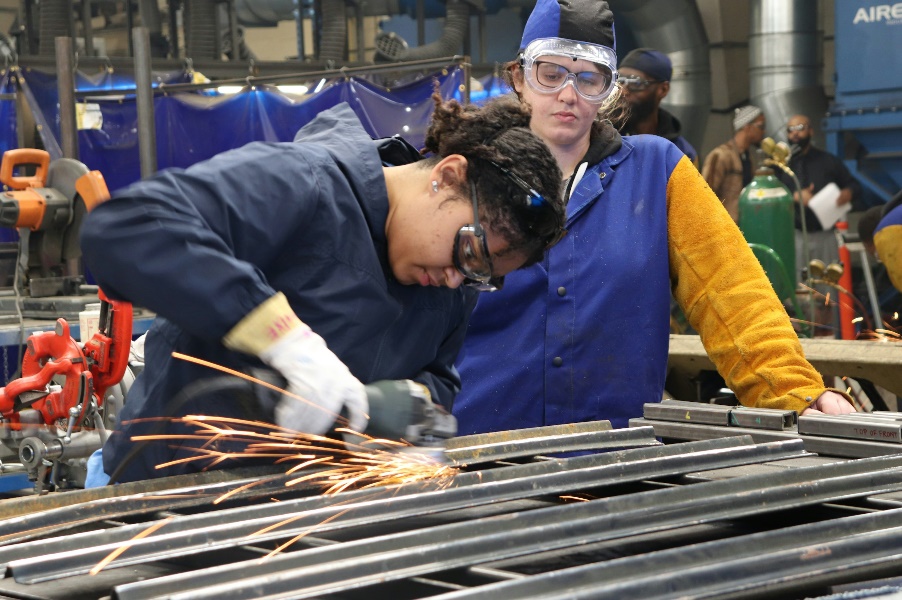The professional landscape is undergoing a significant transformation. As industries evolve, they increasingly require individuals capable of navigating complex, interconnected challenges. The demand for multidisciplinary skills has risen dramatically, driven by technological innovation, global business practices, and the emergence of new fields.
This shift highlights the importance of adaptability, collaboration, and the ability to combine expertise from diverse domains.
Modern workplaces are no longer satisfied with narrowly focused professionals. Instead, they seek individuals who can bridge the gaps between disciplines, fostering innovation and problem-solving.
This trend underscores the importance of acquiring both technical and interpersonal skills to remain competitive. The ability to adapt and thrive in dynamic environments is becoming an essential criterion for success.
Bridging Business and Creativity in Modern Roles
The integration of creativity and analytical skills is redefining many professions, particularly in business-related careers. In this context, a bachelors of arts in business administration serves as a prime example of how foundational education can prepare individuals for diverse challenges. This degree equips graduates with the skills to manage operations, develop strategies, and communicate effectively across departments.
These capabilities are invaluable in roles that require balancing business objectives with innovative approaches.
Professionals in today’s workforce often need to wear multiple hats. For example, a marketing manager must not only understand consumer behavior but also analyze data and craft compelling campaigns. Similarly, a project manager might oversee technical teams while maintaining client relationships. This blend of skills allows professionals to navigate interdisciplinary projects with confidence and competence.
Furthermore, businesses increasingly value employees who can connect creative solutions with practical execution. This combination drives innovation and enhances organizational performance. By fostering a multidisciplinary mindset, professionals can position themselves as indispensable contributors to their teams.
Technology as a Catalyst for Skill Diversification
Technological advancements are a major driver of the demand for multidisciplinary skills. Automation, artificial intelligence, and digital tools have revolutionized industries, transforming job requirements and creating new opportunities.
To remain relevant, professionals must not only understand these technologies but also integrate them effectively into their work.
For instance, a software engineer may need to collaborate with designers and marketing teams to develop user-friendly applications. Similarly, healthcare professionals increasingly rely on technology for patient care, requiring them to learn new tools while maintaining their human-centric approach. This interplay between technical proficiency and broader soft skills is essential for success in the modern workforce.
Additionally, technology has blurred the lines between disciplines. Professionals in media production, for example, may find themselves working with data scientists to analyze audience engagement. This trend highlights the importance of adaptability and the ability to learn continuously. By embracing technology as a tool for growth, professionals can expand their horizons and stay ahead of industry changes.
Collaboration and Cross-Disciplinary Thinking
Collaboration lies at the heart of modern work environments. Businesses are increasingly adopting team-based structures, where individuals from various disciplines come together to achieve common goals.
This approach requires professionals who can communicate effectively, understand different perspectives, and contribute to collective success.
In many industries, cross-disciplinary collaboration is essential for innovation. Consider a product development team that includes engineers, designers, and marketers. Each member brings unique expertise, but the ability to integrate these perspectives is what drives the project’s success.
Professionals with multidisciplinary skills act as bridges, facilitating communication and ensuring alignment between team members.
Moreover, collaboration fosters creativity and problem-solving. When individuals from diverse backgrounds work together, they bring fresh ideas and challenge conventional thinking. This dynamic can lead to breakthroughs that would be impossible within a single-discipline framework. For professionals, the ability to thrive in collaborative settings is a valuable asset that enhances their career prospects.
Preparing for the Careers of the Future
The future of work will continue to demand adaptability and versatility. As industries become more interconnected, the boundaries between roles will blur, creating opportunities for those with multidisciplinary skills. Professionals who embrace lifelong learning and seek out diverse experiences will be better positioned to navigate these changes.
One way to prepare for the future is by investing in skill development. Online courses, workshops, and certifications offer opportunities to gain expertise in new areas. Networking and mentorship can also provide valuable insights into emerging trends and potential career paths. By staying informed and proactive, professionals can align their growth with industry demands.
Another important aspect of career preparation is cultivating transferable skills. Traits like problem-solving, communication, and critical thinking are universally valuable, regardless of the field. These skills enable professionals to adapt to new challenges and collaborate effectively with others. By focusing on both technical and interpersonal development, individuals can build a well-rounded skill set that prepares them for the complexities of modern careers.
The Role of Education in Fostering Multidisciplinary Skills
Educational institutions play a crucial role in shaping the future workforce. Programs that emphasize interdisciplinary learning help students develop the skills they need to succeed in dynamic environments. For example, courses that combine business principles with creative problem-solving prepare graduates for roles that require both analytical and innovative thinking.
Universities and colleges are increasingly incorporating cross-disciplinary elements into their curricula. This approach reflects the realities of the modern workforce, where professionals must navigate diverse challenges. By providing students with a broad foundation of knowledge, educational institutions equip them with the tools to excel in various contexts.
In addition to formal education, experiential learning opportunities, such as internships and collaborative projects, help students apply their skills in real-world settings. These experiences build confidence and foster adaptability, ensuring that graduates are prepared for the demands of their chosen careers.
Multidisciplinary Skills Are the Future
The professional world is evolving at an unprecedented pace, driven by technological advancements, globalization, and shifting industry needs. To thrive in this dynamic environment, individuals must cultivate a broad range of skills that enable them to adapt, collaborate, and innovate. The growing demand for multidisciplinary expertise highlights the importance of continuous learning and a proactive approach to career development.
Higher education programs exemplify the value of foundational education in preparing individuals for diverse roles. By combining analytical skills with creativity and communication, these programs equip graduates to navigate the complexities of modern work environments.
As industries continue to transform, professionals who embrace versatility and seek out opportunities for growth will be well-positioned to succeed. By fostering a multidisciplinary mindset, individuals can unlock new possibilities and contribute meaningfully to their organizations and communities.


























































































































